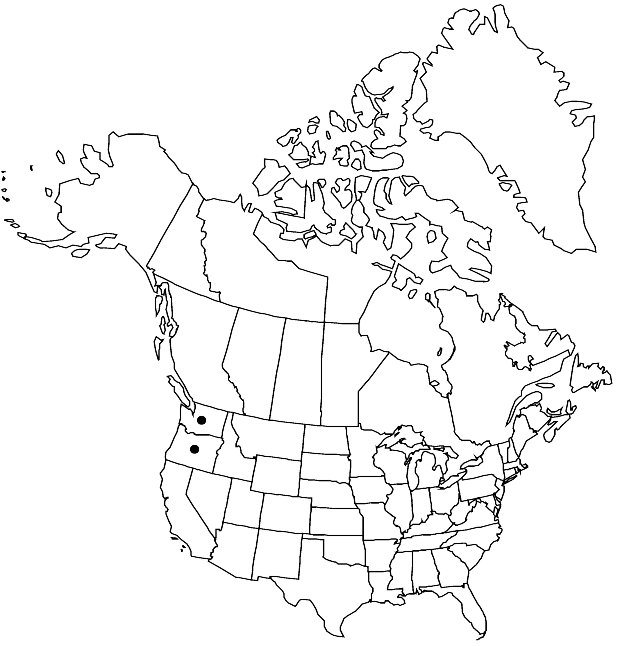Salix columbiana
Harvard Pap. Bot. 12: 359. 2007.
Shrubs, 2–6.5 m. Stems: branches red-brown, glabrous or hairy at nodes; branchlets yellow-brown or red-brown, pubescent, puberulent, or glabrous, (hairs appressed, straight or wavy). Leaves: stipules usually absent or rudimentary, sometimes foliaceous on early ones (apex acute), rudimentary or foliaceous on late ones; petiole 2–5 mm, short-silky adaxially; largest medial blade (sometimes hypostomatous, glands marginal), linear or very narrowly elliptic, 58–115 × 5–17 mm, 5.7–12.8 times as long as wide, base acute or cuneate, margins flat to slightly revolute, remotely spinulose-serrulate or sinuate, apex acuminate, abaxial surface glaucous (sometimes obscured by hairs), sparsely to very densely short- or long-silky, hairs appressed to slightly spreading, straight, adaxial dull, pubescent or long-silky; proximal blade margins entire or remotely denticulate; juvenile blade color obscured by hairs, densely short-silky abaxially. Catkins: staminate 20–83 × 5–13 mm, flowering branchlet 6–125(–200) mm; pistillate densely to moderately densely flowered, slender or stout, 35–90 × 5–12 mm, flowering branchlet 11–160 mm; floral bract 1.4–4 mm, apex acute, rounded, retuse, or truncate, entire or toothed, abaxially hairy throughout or proximally, hairs straight or wavy. Staminate flowers: abaxial nectary 0.3–0.9 mm, adaxial nectary narrowly oblong, oblong, ovate, or flask-shaped, 0.5–1 mm, nectaries distinct or connate and shallowly cup-shaped; filaments hairy on proximal 1/2, throughout, or basally; anthers 0.8–1.3 mm. Pistillate flowers: (abaxial nectary 0.3–0.4 mm), adaxial nectary narrowly oblong, ovate, or flask-shaped, 0.4–1.3 mm, longer than stipe, nectaries distinct or connate and shallowly or partially cup-shaped; stipe 0.2–0.7 mm; ovary pyriform, long-silky, beak abruptly tapering to styles; ovules 18–30 per ovary; styles 0.1–0.2(–0.4) mm; stigmas flat, abaxially non-papillate with rounded tip, or broadly cylindrical, (0.3–)0.5–1.1 mm. Capsules 3.4–5.6 mm. 2n = 38.
Phenology: Flowering May-late Jul.
Habitat: Riparian, sandy-silty to sandy gravel floodplains, old beach dunes, rocky fill along streams
Elevation: 5-40 m
Discussion
Hybrids:
Salix columbiana forms natural hybrids with S. exigua var. exigua and S. sessilifolia. Both hybrids are reported from Oregon and Washington (R. D. Dorn 1998).
Selected References
None.
